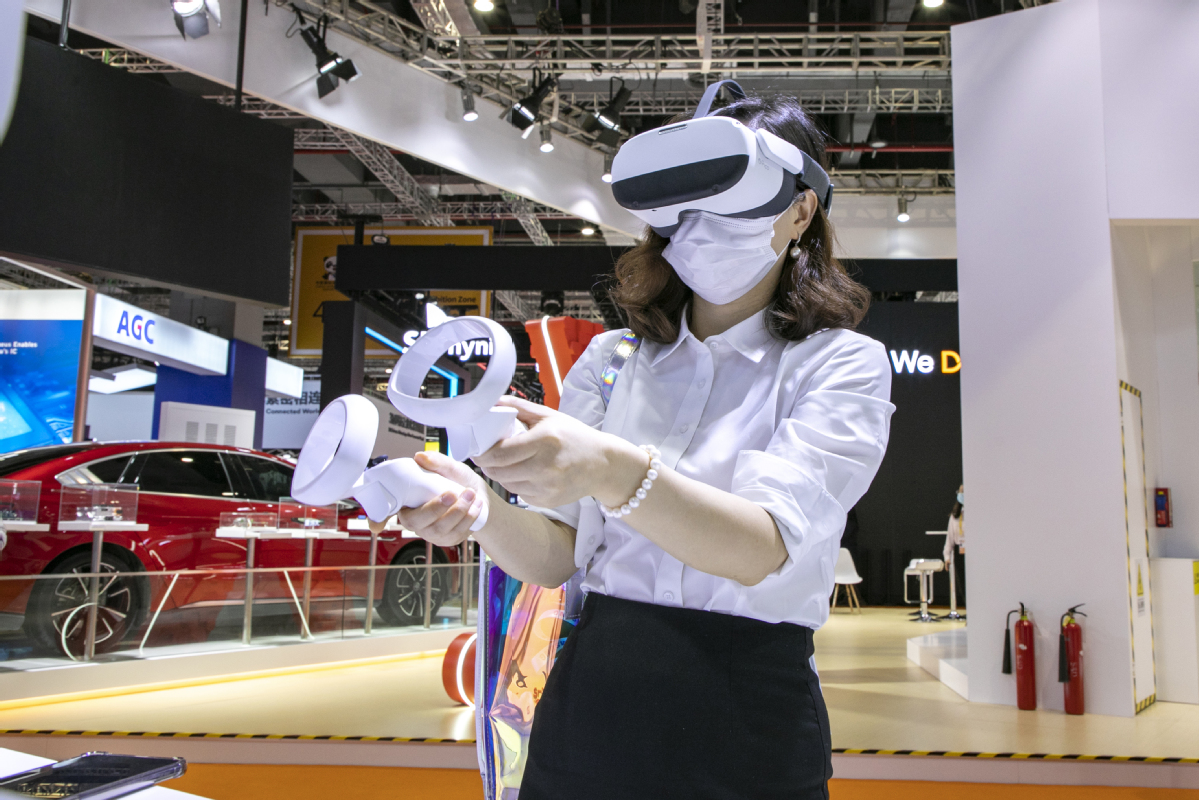Future of internet virtually in sight


Industry opportunities
Experts perceived the metaverse as one phase of the inevitable evolution of internet technologies and a new way for people to interact with content online.
Lingshu's Lin said the concept is linked to the dawning era of Web 3.0.
The current Web 2.0 features the shift from desktop to mobile and from local to cloud storage. During the current phase, the internet has largely been bolstered by three key pillars: IoT, blockchain and artificial intelligence.
"IoT facilitates information collection, blockchain handles the trust issue, and AI turns abstract ideas into tangible applications," he said.
While many companies have benefited greatly from the Web 2.0 era, which features the use of those technologies to provide a range of services, "in a Web 3.0 world, we can expect more control by data users, increasingly decentralized systems "and a variety of payment mechanisms, Lin added.
Rather than interactions with two-dimensional applications on a phone, websites will be transformed into three-dimensional objects, said Xu Zhengchuan, an associate professor specializing in information management at Fudan University's School of Management.
"In the Web 2.0 era, users create content, while companies control and monetize it. But Web 3.0 users manage to create, control and then monetize the content all by themselves," he said.
"With stronger computing power and faster speeds, information exchange, trading and consumption are likely to converge in the virtual world that we call the metaverse," Xu said.
The metaverse will require-and ultimately boost-a number of technologies. Among them is blockchain, which provides the foundation of trust in the economic system of the metaverse.
Lin said blockchain, with its digital ledger containing a growing list of records, functions with each block on the chain having a cryptographic hash-a function that converts one value to another-which describes the previous block on the chain.
"So virtually it is unalterable and impenetrable to fraud, since there is always an end-to-end record for transparency," he said.
Because the metaverse is real-time, decentralized and has parts that can work together without being specifically instructed to do so, Lin said it is easy to imagine how blockchain fits into the vision for metaverse. "It provides reliable, traceable data and all actions can be implemented in a trustworthy way."
Lin is expecting the myriad applications of blockchain in the metaverse to be distilled in the following areas: smart governance, consumer-facing sectors from videos to gaming, industrial internet and digital finance.
"This is because blockchain may become a way we verify the legitimacy of almost any virtual asset, including e-currencies, identities and the authenticity and ownership of virtual property," he said.
Xie Hao, founder and CEO of Yuanyi Changxiang, said some lightweight metaverse solutions have surfaced. He cited the example of a tool for facilitating intelligent sales, designed for BMW China, in which users can easily immerse themselves in a virtual store through a customized mobile app.
The metaverse will also be the place where the concept of IoT digital twins will come together-meaning a virtual version of an actual IoT system can be used, for example, to test the system before it is built in reality.
Performing tests and modeling "what if" scenarios on a digital model turns out to be a lot less costly and labor-intensive than testing physical objects, said Chen Li, founder and CEO of Zhongmo Information Technology.
"In the future, whether it's constructing a new factory or a new subway project, we can have them simulated in the metaverse world before putting them into production, hence greatly improving efficiency," he said.
Such a practice can significantly lower a carbon footprint while including AI in the final decision-making.
People are also upbeat about the future of smart city initiatives, with the metaverse likely to allow civil servants to handle administrative services in areas like the economy, culture, tourism, education and civil complaints in a virtual setting.
"China has over 100 'smart cities' nowadays, putting us in an advantageous position compared with peer cities in the United States or in Europe," said Chen. "With the metaverse in sight, we are likely to see digital twins not only in the industrial sector but in a wider range of social aspects."




































